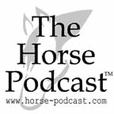
Summary: by Shari Zachrich of Mars Horsecare US, Inc. There are several causes of obesity in horses; too much energy (or too many calories) consumed, too little exercise, and other medical conditions such as insulin resistance or laminitis.nbsp; Just like in humans, a healthy diet and exercise go hand in hand when it comes to shedding the pounds.nbsp; It is unlikely that you will have the results you desire without one or the other.nbsp; There are many concerns involved with an overweight or obese animal in which owners should take notice.nbsp; Overweight horses are subject to many additional stresses due to their overall health including decreased time to fatigue, increased sweating and heat stress, increased respiratory difficulties, leg or joint trauma, and overall decreased performance.nbsp; Overweight horses are at high risk for metabolic disorders such as Insulin Resistance or laminitis. Assessing your horsersquo;s overall condition is an important first step in changing the weight and lifestyle of your horse.nbsp; Attaining a Body Condition Score and using a weight scale are some easy methods to determine a starting point for the new diet.nbsp; Please refer to the April 2, 2008 edition of The Horse-Podcast for more information on Body Condition Scores.nbsp;nbsp; If your horse has no pending medical conditions, then decreased caloric intake and increased exercise is the preferred method to decrease your horsersquo;s weight.nbsp; After considering just how obese or overweight your horse is, you should then evaluate his current diet.nbsp; Your assessment should include everything your horse consumes on a daily basis; hay, grain, pasture, supplements, etc.nbsp; Many owners decide their horse is overweight and decrease the entire intake that horse has in order to lose weight.nbsp; Typically, the average horse owner believes grain and concentrate to be the culprit and limits the intake of these feedstuffs.nbsp; It is important, however, to consider exactly what portion of the diet you are limiting.nbsp; Your goal is to meet the horsersquo;s total daily requirements for protein, mineral, vitamin, and fiber to maintain healthy gut function, while reducing the amount of energy, or calories to lose weight.nbsp; By decreasing the amount of grain or concentrate, you are usually decreasing the amount of vitamins and minerals your horse requires to function properly.nbsp; Instead of limiting the concentrate and starving your horse of important essential vitamins, minerals, amino acids, and other imperative nutrients, it is better to change the forage regimen first. If your horse is on pasture, that is a major component to limit.nbsp; Horses that are prone to being overweight or with little exercise are not a good combination with free choice pasture.nbsp; Pasture has higher energy than hay because the plant in pasture is less mature.nbsp; For a weight loss program, hay is recommended.nbsp; There are two types of hay to choose from, grass and legume.nbsp; Grass hays are timothy, orchard grass, fescue, coastal Bermuda, brome, etc.nbsp; Legumes include alfalfa and clover.nbsp; Because grass hays are typically lower in energy or calories than legume hays, they are also preferred for decreasing the weight of your horse.nbsp; Grass hays are also an excellent source of fiber for the horse and essential for normal hindgut motility and function.nbsp; By decreasing the amount of hay and fiber your horse consumes, you risk digestive upsets and even colic.nbsp; Unhealthy vices can also occur in a horse lacking proper fiber intake such as eating bedding, cribbing, and other indigestible fiber sources.nbsp; Typical grass forages do not meet daily requirements for mature horses in terms of protein, vitamins and minerals.nbsp; These nutrients must be added to the diet by other means. There are a few options when it comes to deciding your horsersquo;s feed sources.nbsp; Option 1 is to feed a reduced calorie feed, such as a low calorie, low sta...
